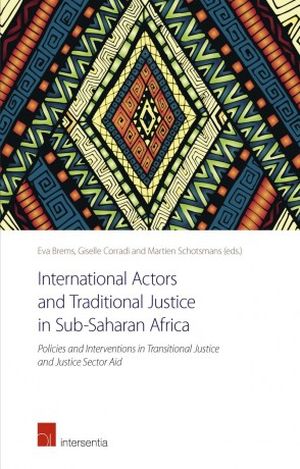
This book studies the role of international actors in the areas of transitional justice and justice sector aid with respect to traditional justice and legal pluralism in sub-Saharan Africa. Based on a number of case studies, the chapters describe the kinds of policies and interventions that are supported and financed by international actors, with special attention for the kinds of strategies that are deployed in order to address areas of tension with human rights. The volume then explores the relationship between international actors' practices and the body of knowledge that exists in these domains, as well as in general socio legal theory. Thereby, this contribution offers empirical data drawn from examples of who is doing what in a series of case studies, identifies regional trends and links them to the existing literature by examining the extent to which the insights generated so far by scholars and practitioners is reflected in the work of international actors. Based on this, the book formulates a number of hypotheses that may explain current trends and proposes additional issues that need to be considered in future research agendas. Finally, the volume links two fields of intervention that have so far evolved in rather parallel ways and explores the commonalities and differences that can be found in the areas of transitional justice and justice sector aid.